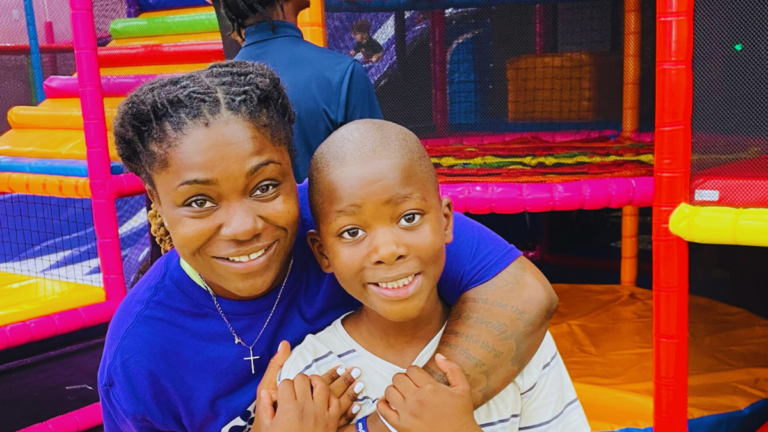Tabla de contenidos
How did Justice Jackson navigate parenthood and a legal career?
Justice Ketanji Brown Jackson made history when she became the first Black woman and the first former federal public defender to serve on the United States Supreme Court. Her groundbreaking career has established her as a legal pioneer. However, her personal story, detailed in her memoir Lovely One, shows us another facet of her life: being a mother of a daughter with autismo.
En Texas ABA Centers, we provide exceptional autism services while fostering understanding within the community. We believe in sharing stories that shine a light on the complexities of autism and demonstrate how families can thrive!
Navigating Life with a Daughter with Autism

In 2012, Justice Jackson’s eldest daughter, Talia, was diagnosed with autism at 11 years old. For years, Justice Jackson and her husband had viewed Talia’s challenges through the lens of their high-achieving academic standards. Both accomplished in their respective fields, they initially believed that hard work and traditional learning methods could help Talia succeed. However, the diagnosis was a turning point that changed their understanding of their daughter’s needs.
Justice Jackson describes the relief that came with having a name for the struggles Talia had faced, “autism spectrum disorder,” an explanation that allowed them to see her not through the lens of expectations but as someone with unique neurological differences. While the diagnosis was clarifying, it also brought new challenges, especially as Justice Jackson balanced the demands of her high-stakes legal career with the needs of a neurodivergent child.
The Dual Challenges of Motherhood and a Legal Career
As Justice Jackson navigated her professional ascent, she also faced the emotional complexities of parenting. Balancing the courtroom with her family life became an intricate juggling act. Like many parents of children with autism, she wrestled with feelings of guilt and uncertainty, wondering if she was making the right choices.
In a recent interview with CNN, Justice Jackson spoke of the emotional burden of having a daughter with autism. She also expressed feelings of helplessness, struggling to balance her career and her daughter’s needs, even admitting that, had she known the extent of Talia’s problems earlier, she might have considered leaving her demanding legal job to care for her daughter full-time.
Their journey is a reflection of the broader challenges families face when raising children with autism, especially in environments that demand constant professional and personal excellence.
Lessons in Acceptance and Advocacy
In her memoir “Lovely One,” Justice Jackson underscores the importance of acceptance—not just of her daughter’s unique strengths and challenges but also of the imperfections inherent in balancing motherhood and career. Her story highlights how families can thrive when they embrace neurodiversity and seek out resources to support their children’s development.
Through Talia’s journey, Justice Jackson also became a quiet advocate for greater understanding and inclusivity for families navigating autism. Her openness helps dismantle the stigma that often surrounds autism diagnoses, encouraging others to seek support without hesitation or shame.
The Broader Implications for Autism Acceptance
Justice Jackson’s story goes beyond her personal experiences—it reminds us that autism is a part of many families’ lives, regardless of social or cultural background. Sharing these journeys helps break down the isolation that many parents feel when raising a neurodivergent child. Her openness encourages others to embrace their own experiences and feel confident in sharing them without fear or shame.

When public figures and leaders talk about autism in their families, it creates space for more understanding and empathy. It shows that autism is not something to hide or avoid discussing but a reality that touches people from all walks of life. These conversations help shift societal perceptions, moving us closer to a world where discussing autism feels as natural as talking about any other part of life.
Support for Families at Texas ABA Centers
For families navigating autism, the journey can feel daunting without the proper support. At Texas ABA Centers, we are the top provider of autism care services, guiding families in Austin, Dallas, Katy, and Houston in understanding the needs but also highlighting the unique abilities of their children on the spectrum.
Our personalized ABA therapy programs work with an evidence-based, positive reinforcement approach to help children and adolescents with autism learn critical life skills, from social and communication skills to academic and self-care skills.
Whether you are seeking an autism diagnosis, early intervention, or strategies to navigate later stages of development, we offer a compassionate, proven path forward. For more information, call us at (877) 771-5725 o contáctanos en línea.









